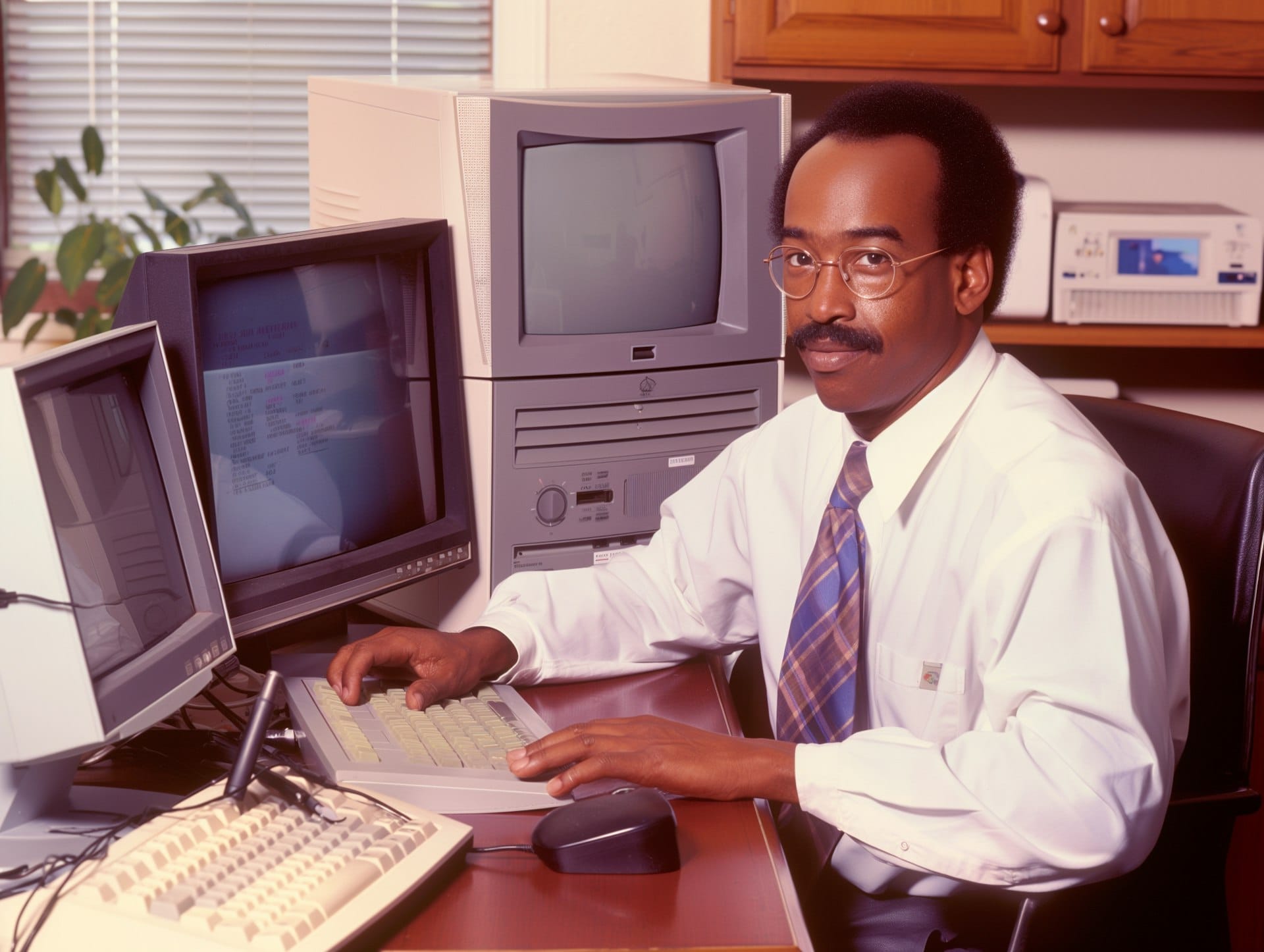AI and Self-Diagnosis: A Risky Combination for Your Health
Table of Content
Artificial intelligence (AI) has become increasingly accessible, with AI-powered health apps and chatbots offering quick medical advice at our fingertips. The allure of instant diagnosis is undeniable, but the growing trend of self-diagnosing using AI tools poses significant risks that warrant careful consideration.
AI in healthcare relies heavily on Large Language Models (LLMs), sophisticated neural networks trained on vast amounts of text data. These models, such as GPT-3 or BERT, can process and generate human-like text, making them seem intelligent and knowledgeable.
However, it's crucial to understand that LLMs are not medical experts and lack the nuanced understanding that comes from years of medical training and hands-on experience.
Consider these AI-powered health tools:
- Symptom Checkers: Apps like Ada or WebMD's AI-driven symptom checker ask users about their symptoms and provide potential diagnoses.
- Chatbots: AI chatbots like Babylon Health's "Ask Babylon" offer conversational interfaces for health queries.
- Mental Health Apps: Tools like Woebot use AI to provide cognitive behavioral therapy-inspired conversations.
While these tools can be helpful for general health information, relying on them for self-diagnosis can be dangerous. AI models may misinterpret symptoms, overlook crucial details, or fail to consider an individual's complete medical history.
Moreover, they can't perform physical examinations or order necessary tests, which are often critical for accurate diagnoses.
The risks of AI self-diagnosis include:
- Misdiagnosis: Leading to delayed treatment for serious conditions or unnecessary worry for benign issues.
- Over-reliance on technology: Potentially discouraging people from seeking professional medical care.
- Privacy concerns: AI health apps may collect sensitive personal data, raising questions about data security and usage.
While AI has a place in healthcare, it should complement, not replace, professional medical advice. Healthcare professionals bring irreplaceable expertise, empathy, and holistic understanding to patient care. They can interpret subtle cues, consider complex medical histories, and provide personalized treatment plans that AI simply cannot match.
As we navigate this AI-driven world, it's crucial to use these tools responsibly. AI can be valuable for health education and tracking, but when it comes to diagnosis and treatment, consulting healthcare professionals remains paramount. Your health deserves the nuanced, expert care that only trained medical professionals can provide.
The Allure of AI-Powered Self-Diagnosis
The appeal of AI-powered health tools is undeniable. These digital diagnosticians offer convenience, accessibility, and cost-effectiveness. With a few taps on your smartphone, you can input symptoms and receive potential diagnoses instantly. This quick gratification is particularly enticing when health concerns arise and you're seeking immediate answers.
However, this convenience comes with significant risks. The ease of use and instant results can lead to over-reliance on these tools, potentially discouraging users from seeking professional medical advice. While AI health apps can provide general information, they lack the nuanced understanding and comprehensive approach of trained healthcare professionals.
However, this convenience comes with significant drawbacks. The risks of self-diagnosing with AI significantly outweigh any perceived benefits. Here's why:
1. Lack of Medical Expertise
A primary reason why self-diagnosing with AI is problematic is the lack of medical expertise among users. Most people struggle to accurately describe their symptoms or interpret AI-generated results. Medical terminology is intricate and nuanced, leading to potential misunderstandings. For instance, a patient's description of a "sharp pain" might have a different medical significance than they realize.
Furthermore, the complexity of symptom interpretation extends beyond terminology. Many conditions share overlapping symptoms, making it challenging for non-professionals to distinguish between them. What may seem like a minor headache could be indicative of a more serious underlying condition. Without proper medical training, it's difficult to navigate the nuances of symptom analysis and potential causes.
This lack of expertise can lead to misinterpretation of AI-generated information, potentially resulting in incorrect self-diagnosis. It's crucial to recognize that while AI can provide general health information, it cannot replace the comprehensive knowledge and experience of healthcare professionals in accurately assessing and diagnosing medical conditions.


2. AI's Limitations in Healthcare
While AI has made remarkable progress in healthcare, it's not without limitations. AI systems, despite being trained on vast datasets, can't fully replicate the extensive education, hands-on experience, and intuition of human doctors.
They may overlook subtle cues or fail to consider the complete picture of a patient's health, including medical history, lifestyle, and environmental factors.
Moreover, AI systems may not always be up-to-date with the latest medical research or emerging health trends. This lag in information could potentially lead to outdated or inaccurate diagnoses, highlighting the importance of human expertise in healthcare. The combination of these factors underscores why AI should complement, rather than replace, professional medical judgment.
3. The Risk of Misdiagnosis
Self-diagnosing with AI poses a significant risk of misdiagnosis, potentially leading to two dangerous scenarios. First, you might underestimate a serious condition, dismissing a life-threatening issue as minor and delaying crucial treatment.
Second, you could overestimate a minor issue, causing unnecessary panic and possibly engaging in harmful self-treatment. Both cases can severely impact your health.
The consequences of misdiagnosis extend beyond immediate health concerns. Underestimating serious conditions may result in disease progression, complicating treatment and reducing chances of recovery.
Conversely, overestimating minor issues can lead to anxiety, unnecessary medical procedures, and potential side effects from unneeded treatments. These outcomes underscore the importance of professional medical evaluation over AI-based self-diagnosis.
4. Anxiety and Hypochondria
Relying on AI for self-diagnosis can significantly exacerbate anxiety and hypochondria, creating a potentially harmful cycle of health-related stress. The internet, with its vast repository of medical information, is notorious for presenting worst-case scenarios that can easily overwhelm and frighten users.
AI systems, in their attempt to be comprehensive, often generate a wide array of possible diagnoses, including rare and serious conditions that may be statistically unlikely but emotionally impactful.
This barrage of potential health issues, particularly when presented by an AI that lacks the nuanced understanding of a human healthcare professional, can trigger intense worry and stress in users.
The human tendency to fixate on negative possibilities, combined with the authoritative tone of AI-generated content, can lead individuals to believe they are suffering from severe ailments when, in reality, their symptoms may be benign or easily treatable.
The psychological impact of this AI-induced health anxiety can be profound and far-reaching. Constant worry about one's health can manifest in physical symptoms, creating a self-fulfilling prophecy where anxiety itself mimics the very conditions one fears.
This unnecessary stress can have cascading negative effects on both mental and physical well-being, potentially leading to sleep disturbances, changes in appetite, decreased immune function, and even social isolation as individuals become increasingly preoccupied with their perceived health issues.
5. Neglecting Professional Medical Care
The gravest risk of AI self-diagnosis is its potential to discourage professional medical care. Regular check-ups and timely consultations are crucial for maintaining health and early detection of issues.
Overreliance on AI can lead to missed opportunities for preventive care and early intervention, jeopardizing overall well-being.
While AI tools can provide general health information, they cannot replace the comprehensive assessment, physical examination, and personalized care that healthcare professionals offer. Balancing AI's convenience with professional medical expertise is essential for optimal health management and avoiding potentially serious consequences of delayed or missed diagnoses.
6. The Importance of Human Touch in Healthcare
Healthcare transcends mere illness diagnosis; it encompasses holistic care, support, and reassurance. While AI has made significant strides in medical technology, it lacks the crucial elements of empathy and personal connection that human healthcare providers offer.
A doctor's role extends far beyond identifying ailments; they provide essential context, translate complex medical jargon into understandable terms, and offer much-needed emotional support throughout a patient's health journey.
The human touch in healthcare is irreplaceable. A skilled physician can read subtle non-verbal cues, understand the nuances of a patient's medical history, and tailor their approach to each individual's unique circumstances.
They can offer comfort during difficult diagnoses, celebrate health improvements, and provide a reassuring presence that no algorithm can replicate. This human element fosters trust, encourages open communication, and ultimately leads to better health outcomes.
While AI can process vast amounts of data rapidly, it cannot replicate the intuition, experience, and emotional intelligence that human healthcare providers bring to patient care. The combination of medical expertise and genuine human connection remains the cornerstone of effective healthcare delivery.
The Right Way to Use AI in Healthcare
While AI shouldn't replace professional medical care, it can be a valuable tool when used correctly. AI can support healthcare professionals and improve patient outcomes when utilized as a complement to expert care.
Here are some appropriate ways to leverage AI in your health journey:
- Health Tracking: Use AI-powered apps to monitor vital signs, physical activity, sleep patterns, and dietary habits. These tools can provide insights into your overall health trends and help you make informed lifestyle choices.
- Medication Management: AI can assist with medication adherence by sending reminders for dosages and refills. It can also alert you to potential drug interactions or side effects based on your medication history.
- Appointment Scheduling: AI-powered systems can help manage your healthcare appointments, sending reminders and even suggesting optimal times based on your schedule and the availability of healthcare providers.
- Health Education: Access AI-curated health information from reputable sources to learn about general health topics, preventive care measures, and common medical conditions. This can help you have more informed discussions with your healthcare provider.
Remember, while AI can offer valuable support, it should never substitute for the expertise and personalized care of qualified healthcare professionals. Always seek your doctor's advice for diagnosis, treatment, and medical guidance.
Final Note: Trust the Experts
The allure of quick, convenient self-diagnosis through AI is undeniable, but it's crucial to resist this temptation. Your health is far too important to entrust to chance or to an AI algorithm that lacks knowledge of your full medical history and personal circumstances.
Instead, focus on building relationships with healthcare professionals you trust. These experts possess the knowledge, experience, and human insight necessary to provide accurate diagnoses and appropriate treatment plans.
While AI can be a useful tool to support your health journey, always defer to the expertise of qualified medical professionals for diagnosing and treating health conditions.
When it comes to your health, it's always better to err on the side of caution. Don't let AI's convenience compromise your well-being. Place your trust in the experts and give your health the professional attention it truly deserves.









